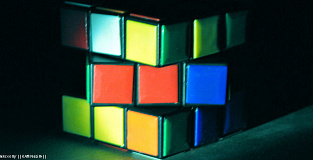
читайте также
Everyone wants to be happy, right? Even the American Constitution states that everyone has an undeniable right to pursue happiness. But how do people pursue happiness? Would you agree that many of us equate pursuing happiness with pursuing pleasure? The assumption that pleasure equals happiness is the first myth of life.
We pursue pleasure by maximizing sex, seeking the richest food, driving expensive cars, smoking and drinking, and, in extreme cases, by taking pleasure-giving drugs—sniffing cocaine, shooting heroin, or smoking marijuana.
But does pleasure bring happiness?
If you want to meet miserable people go see those who can afford all the pleasures the world can offer: the stars of Hollywood. Many die from overdoses.
So how should one pursue happiness?
The first prerequisite is being healthy. Have you ever seen a sick person who is happy?
Herein hides the second myth of life: the belief that if ones body is healthy one will be happy overall.
This myth, seeking happiness in a healthy body, has allowed the exercise industry to mushroom. It seems that anyone with above average muscles is a personal trainer, people are jogging and stretching and puffing, and how happy are they? They are not depressed, granted, but are they happy?
Being physically healthy is a "need to" for one to be happy. It is a necessity, but not a sufficient condition alone.
To be happy overall one needs to be emotionally happy too. Have you seen an untreated bipolar person happy? Or anyone with a mental disorder who is conscious of his or her condition?
But even being emotionally happy is not enough, which is the third myth of life.
One has to have spiritual development too. One has to be conscious of powers higher than oneself, and of absolute rules of behavior that set boundaries.
If one sees oneself as the center of the world, free to do whatever he or she wishes to do, one finds that it usually produces misery, not happiness. No human being has the power to be in control of all he or she wishes.
Whenever we climb to the top of one mountain we discover another even higher peak to climb. Eventually expectations exceed capabilities, and one becomes disillusioned and frustrated.
How happy are narcissistic top executives or politicians? In spite of their achievements, my experience is that they are frustrated with their inability to control everything their ego wants.
Galileo proved that the sun does not move around earth. It is the earth that goes around the sun. By analogy, we need to realize that we, human beings, circle and move around a higher consciousness that is eternal, and not vice versa. Without such an "anchor" one is lost in space.
Recognizing how "small" we are makes us less arrogant, more humble. It frees us from wishing and being upset with ourselves when what we wish for is not attainable. We need to recognize that we are not in control; we need to yield to the realities of life.
My point here is that it is okay to want. It is not okay to wish. "Wishing" entails expectation. When we expect we subconsciously assumes that we are in control of a situation. We should want, and do the best we can to get what we want, but we should not expect it. We need to let be what will be.
All three components of ones being—body, psyche, and spirit—must be "healthy," but still, it is not enough, which is the fourth myth of life.
We human beings are not solitary animals. We are social animals. We congregate. Thus a prison is a punishment, and beyond being imprisoned the worst punishment is solitary confinement.
The sixth myth is to seek happiness by avoiding the inevitable pain of having to relate to someone else, like a spouse, whose style is different from ours.
Running away from relationships is running away from one problem only to fall into another, one of solitude, loneliness, and a sense of failure. Sadhus in India seclude themselves from civilization, living in caves and meditating all day long. They might be happy, but would you call that a life lived to the fullest?
What is life? Change which brings me to the seventh myth of life: the unrealistic expectation to be happy all the time.
Once I saw a quote that says in a marriage anytime you get upset with your spouse just wait two days. You will feel different.
Life has its ups and it has its downs. Life is a roller coaster.
If all the above myths are erroneous guides to happiness what is the right thing to do?
May I suggest that the road to happiness is LOVE.
The more love in your life, the happier you will be.
Start with the entity closest to you: yourself.
Do you love yourself? Are you taking care of yourself? If you do not take care of your body, where are you going to live? Do you feed your body right? Do you sleep enough? Exercise? Do you "feed" yourself emotionally, intellectually, and spiritually? If you do not take care of yourself, who will? Next, do you love your spouse, your children? Extended family? Home? Car? Job? Even the books you read? The city you live in? Country you live in? Your friends? Everything you come in contact with?
The more love in your life the happier you will be.
Love does not mean pleasure. To understand the difference between love and pleasure one has to understand the difference between liking and loving.
You like because of. You love in spite of.
People or things you love do not always give you pleasure. On the contrary. They will give you pain too.
Why? The more pleasure they give you, the more pain you will feel when that pleasure is missing. And it will be missing from time to time because life is change. As time passes or conditions change, the things or people you love might not be always there as you want them to be, when you want them to be.
There is no love without pain.
Being happy is realizing you will be unhappy from time to time too. So, love despite the reality of life that what you love might periodically give you pain.
Happiness is not a destination, nor a journey.
It is the condition of your journey.
With all my love,
Ichak Adizes








